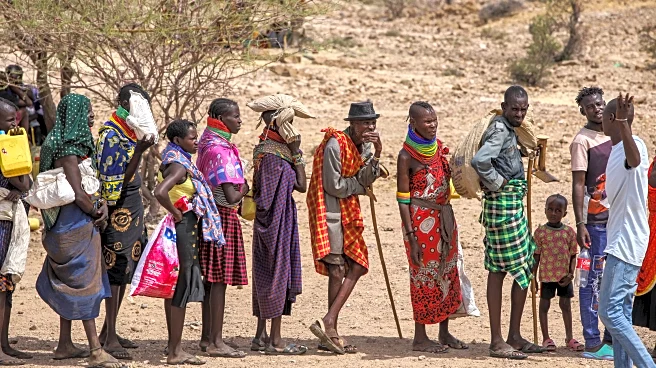What is the story about?
What's Happening?
The World Bank has issued a warning to countries in East Asia and the Pacific, including Cambodia, about the risks of slowing economic growth and potential 'trade traps.' The region's growth outlook is weakening due to global trade tensions, automation, and reduced consumer confidence. The World Bank's report highlights the need for increased investment in workforce skills, job creation, and digital infrastructure to prevent rising poverty and long-term economic stagnation. Cambodia's economic growth forecast has been revised down to 4.0% for 2025, reflecting weaker external demand and limited diversification. The country's reliance on garment and footwear exports makes it vulnerable to trade volatility, and the high level of informal employment poses challenges to productivity and economic advancement.
Why It's Important?
The World Bank's warning is significant as it underscores the challenges faced by economies in the East Asia and Pacific region, particularly in adapting to global economic shifts. For Cambodia, the revised growth forecast and reliance on low-skilled labor highlight the need for structural reforms to enhance economic resilience. The report suggests that without strategic investments in human capital and digital infrastructure, countries like Cambodia may struggle to achieve sustainable development goals. This situation could impact regional stability and economic partnerships, influencing U.S. trade relations and foreign policy in the region.
What's Next?
Cambodia's government is responding by expanding vocational and technical training programs to improve workforce skills and diversify the economy. The Ministry of Labor and Vocational Training plans to introduce new initiatives across vocational schools, focusing on higher-value industries. Additionally, the Ministry of Economy and Finance is prioritizing investment in digital infrastructure to support growth. These efforts aim to create new employment opportunities and support returning migrant workers, which are crucial for maintaining social and economic stability.















